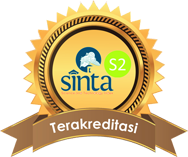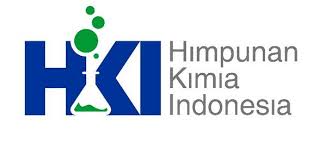Development of 21st Century Skills in Acid-Base Learning Through STEAM Projects
DOI:
https://doi.org/10.15575/jtk.v7i1.4913Keywords:
21st century skills, acid-base, chemistry learning, project based learning, STEAM approachAbstract
This study is aimed to develop students' 21st century skills by integrating STEAM projects (Science, Technology, Engineering, Art, and Mathematics) in learning chemistry on acid and base solutions. Interdisciplinary learning was designed to allow students to be actively involved in learning through project development activities to see the relevance of learning content and its application in real life. This study involved 35 students of natural science 11th grade, consisting of 14 boys and 21 girls, in one of public senior high schools in DKI Jakarta Province. Researchers used qualitative methods to understand students' experiences and the implications of learning on their 21st century skills. The researcher collected data through semi-structured interviews, observation, journal reflective, and 21st century skills questionnaires. The results showed that each stage of STEAM learning integrated with project-based learning encouraged students to develop 21st century skills, namely learning and innovation skills, skills using information, media, technology, and life and career skills. Students reflected their abilities in using information and technology, the ability to work together, communication, and thinking at higher levels, as well as adaptability and leadership. In addition, Students were also faced with challenges in changing the paradigm of teachers and students and managing the learning process.
References
Adriyawati, Utomo, E., Rahmawati, Y., & Mardiah, A. (2020). Steam-project-based learning integration to improve elementary school students’ scientific literacy on alternative energy learning. Universal Journal of Educational Research, 8(5), 1863–1873. https://doi.org/10.13189/ujer.2020.080523
Alismail, H. A., & McGuire, P. (2015). 21 St Century Standards and Curriculum: Current Research and Practice. Journal of Education and Practice, 6(6), 150–155. http://files.eric.ed.gov/fulltext/EJ1083656.pdf
Başaran, M., & Erol, M. (2021). Recognizing aesthetics in nature with STEM and STEAM education. Research in Science & Technological Education, 1–17. https://doi.org/10.1080/02635143.2021.1908248
Bhargava, S. (2016). Role of Chemistry in Everyday Life. Journal of Chemistry and Chemical Sciences, 6(2), 192–198. Retreieved from http://chemistry-journal.org/dnload/Sunita-Bhargava/CHEMISTRY-JOURNAL-CHJV06I02P0192.pdf
Chu, H.-E., Martin, S. N., & Park, J. (2019). A Theoretical Framework for Developing an Intercultural STEAM Program for Australian and Korean Students to Enhance Science Teaching and Learning. International Journal of Science and Mathematics Education, 17(7), 1251–1266. https://doi.org/10.1007/s10763-018-9922-y
Cioc, C., Haughton, N., Cioc, S., & Napp, J. (2022). A Model for incorporating information literacy and collaboration in a project-based learning pedagogical exercise with application to a fluid mechanics course. International Journal of Mechanical Engineering Education, 030641902210814. https://doi.org/10.1177/03064190221081450
Davis, S., & Long II, R. L. (2017). Using STEAM to Increase Engagement and Literacy Across Disciplines. The STEAM Journal, 3(1). Retreieved from https://web.archive.org/web/20180720184412id_/http://scholarship.claremont.edu/cgi/viewcontent.cgi?article=1148&context=steam
Gardner, M., & Tillotson, J. W. (2019). Interpreting integrated STEM: sustaining pedagogical innovation within a public middle school context. International Journal of Science and Mathematics Education, 17(7), 1283–1300. https://doi.org/10.1007/s10763-018-9927-6
Grossman, P., Dean, C. G. P., Kavanagh, S. S., & Herrmann, Z. (2019). Preparing teachers for project-based teaching. Phi Delta Kappan, 100(7), 43–48. https://doi.org/10.1177/0031721719841338
Guba, E. G., & Lincoln, Y. (1989). Fourth Generation Evaluation. SAGE Publications.
Hadinugrahaningsih, T., Rahmawati, Y., & Ridwan, A. (2017). Developing 21st century skills in chemistry classrooms: Opportunities and challenges of STEAM integration. 030008. https://doi.org/10.1063/1.4995107
Hawari, A. D. M., & Noor, A. I. M. (2020). Project Based Learning Pedagogical Design in STEAM Art Education. Asian Journal of University Education, 16(3), 102–111. https://doi.org/10.24191/ajue.v16i3.11072
Henriksen, D., Mehta, R., & Mehta, S. (2019). Design Thinking Gives STEAM to Teaching: A Framework That Breaks Disciplinary Boundaries. In M. Khine & S. Areepattamannil (Eds.), STEAM Education (pp. 57–78). Springer International Publishing. https://doi.org/10.1007/978-3-030-04003-1_4
Holmes, V. R. (2017). Capital One Dream On/STEAM On Initiative: Preparing Students for STEAM College and Careers through Project-based Learning, 2016-2017. In Research: Educational Program Report. HISD (Houst on Independent School District). Retreieved from https://eric.ed.gov/?id=ED603543
Johnstone, A. H. (1991). Why is science difficult to learn? Things are seldom what they seem. Journal of Computer Assisted Learning, 7(2), 75–83. https://doi.org/10.1111/j.1365-2729.1991.tb00230.x
Khamhaengpol, A., Sriprom, M., & Chuamchaitrakool, P. (2021). Development of STEAM activity on nanotechnology to determine basic science process skills and engineering design process for high school students. Thinking Skills and Creativity, 39, 100796. https://doi.org/10.1016/j.tsc.2021.100796
Khine, M., & Areepattamannil, S. (2019). STEAM Education (M. S. Khine & S. Areepattamannil (eds.)). Springer International Publishing. https://doi.org/10.1007/978-3-030-04003-1
Kim, J. (2011). A Cubic Model for STEAM Education. Korean Journal of Technology Education, 11(2), 124–139. Retreieved from https://link.springer.com/article/10.1007/s10763-015-9709-3
Kuhn, M. (2015). Encouraging Teachers to W.A.I.T Before Engaging Students In Next Generation Science Standards STEAM Activities. STEAM, 2(1), 1–6. https://doi.org/10.5642/steam.20150201.15
Lee, J.-C., Wang, C.-L., Yu, L.-C., & Chang, S.-H. (2016). The effects of perceived support for creativity on individual creativity of design-majored students: A multiple-mediation model of savoring. Journal of Baltic Science Education, 15(2), 232–245. https://doi.org/10.33225/jbse/16.15.232
Lu, S.-Y., Lo, C.-C., & Syu, J.-Y. (2021). Project-based learning oriented STEAM: the case of micro–bit paper-cutting lamp. International Journal of Technology and Design Education. https://doi.org/10.1007/s10798-021-09714-1
MacMath, S., Sivia, A., & Britton, V. (2017). Teacher perceptions of project based learning in the secondary classroom. Alberta Journal of Educational Research, 63(2), 175–192. https://doi.org/10.11575/ajer.v63i2.56345
Miles, M., & Huberman, A. (1994). Qualitative Analysis: An Expanded Source Book (2nd ed.). SAGE.
Nurkholis Majid, A., & Rohaeti, E. (2018). The effect of context-based chemistry learning on student achievement and attitude. American Journal of Educational Research, 6(6), 836–839. https://doi.org/10.12691/education-6-6-37
Nurramadhani, A., Kumala, F., & Permana, I. (2021). STEAM-based project learning: the effect to middle school’s student’s collaboration competences. Journal of Physics: Conference Series, 2098(1), 012038. https://doi.org/10.1088/1742-6596/2098/1/012038
Pacific Policy Research Center. (2010). 21st Century Skills for Students and Teachers. Kamehameha Schools, Research, & Evaluation Division.
Park, H., Byun, S., Sim, J., Han, H.-S., & Baek, Y. S. (2016). Teachers’ Perceptions and Practices of STEAM Education in South Korea. EURASIA Journal of Mathematics, Science and Technology Education, 12(7). https://doi.org/10.12973/eurasia.2016.1531a
Partnership for 21st Century Skills. (2008). 21st Century Skills, Education & Competitiveness.
Patterson, A., & Muna, N. (2019). 3-D printing as a STEAM tool for bridging artistic and technical design perspectives. Steam, 4(1), 1–2. https://doi.org/10.5642/steam.20190401.10
Rahmawati, Y., Ridwan, A., Hadinugrahaningsih, T., & Soeprijanto. (2019). Developing critical and creative thinking skills through STEAM integration in chemistry learning. Journal of Physics: Conference Series, 1156(1). https://doi.org/10.1088/1742-6596/1156/1/012033
Rahmawati, Y., Ridwan, A., Mardiah, A., & Afrizal. (2020). Students’ chemical literacy development through STEAM integrated with dilemmas stories on acid and base topics. Journal of Physics: Conference Series, 1521(4). https://doi.org/10.1088/1742-6596/1521/4/042076
Rahmawati, Yuli, Hadinugrahaningsih, T., Ridwan, A., Palimbunga, U. S., & Mardiah, A. (2021). Developing the critical thinking skills of vocational school students in electrochemistry through STEM - Project-based learning (STEM-PjBL). AIP Conference Proceedings, 2331. https://doi.org/10.1063/5.0041915
Rahmawati, Yuli, Taylor, E., Taylor, P. C., Ridwan, A., & Mardiah, A. (2022). Students’ Engagement in Education as Sustainability: Implementing an Ethical Dilemma-STEAM Teaching Model in Chemistry Learning. Sustainability, 14(6), 3554. https://doi.org/10.3390/su14063554
Ridwan, A., Rahmawati, Y., Mardiah, A., & Rifai, A. (2020). Developing 22nd century skills through the integration of STEAM into smoke absorber project. Journal of Physics: Conference Series, 1521(4). https://doi.org/10.1088/1742-6596/1521/4/042077
Roy, S. (2016). Chemistry in Our Daily Life : Preliminary Information . International Journal of Chemistry in our daily life : Preliminary information. International Journal of Home, 2(3), 361–366. Retreieved from https://www.homesciencejournal.com/archives/2016/vol2issue3/PartF/2-3-26.pdf
Saglam, Y., Karaaslan, E. H., & Ayas, A. (2011). The impact of contextual factors on the use of students’ conceptions. International Journal of Science and Mathematics Education, 9(6), 1391–1413. https://doi.org/10.1007/s10763-010-9269-5
Shen, S., Wang, S., Qi, Y., Wang, Y., & Yan, X. (2021). Teacher Suggestion Feedback Facilitates Creativity of Students in STEAM Education. Frontiers in Psychology, 12. https://doi.org/10.3389/fpsyg.2021.723171
Sirhan, G. (2007). Learning Difficulties in Chemistry: An Overview. 4(2), 2–20. http://www.tused.org
Tenhovirta, S., Korhonen, T., Seitamaa-Hakkarainen, P., & Hakkarainen, K. (2021). Cross-age peer tutoring in a technology-enhanced STEAM project at a lower secondary school. International Journal of Technology and Design Education. https://doi.org/10.1007/s10798-021-09674-6
Tome, V., & De Abreu, B. S. (2022). Crossing Steam and Media Literacy at Preschool and Primary School Levels: Teacher Training, Workshop: Planning, its Implementation, Monitoring and Assessment. Media Literacy and Academic Research, 5(1), 161–177. Retreieved from https://www.ceeol.com/search/article-detail?id=103767
Trilling, B., & Fadel, C. (2009). 21st Century Skills: Learning for Life in Our Times. John Wiley & Sons.
Vreeburg Izzo, M., Yurick, A., Nagaraja, H. N., & Novak, J. A. (2010). Effects of a 21st-century curriculum on students’ information technology and transition skills. Career Development for Exceptional Individuals, 33(2), 95-105. Retrieved from https://journals.sagepub.com/doi/abs/10.1177/0885728810369348
Wilson, H. E., Song, H., Johnson, J., Presley, L., & Olson, K. (2021). Effects of transdisciplinary STEAM lessons on student critical and creative thinking. The Journal of Educational Research, 114(5), 445–457. https://doi.org/10.1080/00220671.2021.1975090
Yakman, G., & Lee, H. (2012). Exploring the Exemplary STEAM Education in the U.S. as a Practical Educational Framework for Korea. Journal of The Korean Association For Science Education, 32(6), 1072–1086. https://doi.org/10.14697/jkase.2012.32.6.1072
Downloads
Published
How to Cite
Issue
Section
Citation Check
License
Authors who publish with this journal agree to the following terms:
- Authors retain copyright and grant the journal right of first publication with the work simultaneously licensed under a Creative Commons Attribution-ShareAlike that allows others to share the work with an acknowledgement of the work's authorship and initial publication in this journal.
- Authors are able to enter into separate, additional contractual arrangements for the non-exclusive distribution of the journal's published version of the work (e.g., post it to an institutional repository or publish it in a book), with an acknowledgement of its initial publication in this journal.
- Authors are permitted and encouraged to post their work online (e.g., in institutional repositories or on their website) prior to and during the submission process, as it can lead to productive exchanges, as well as earlier and greater citation of published work (See The Effect of Open Access).









